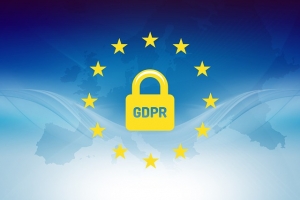What you need to know about marketing regulations
When you’re creating social media posts, blogs and other forms of marketing for your business, it can seem easy to just sit down and write what’s in your mind. In most cases, this will be absolutely fine but there are some marketing regulations you need to be aware of to stay the right side of the law.
First thing to do before planning and creating any marketing for your business, check out the government’s website full of guidance on marketing and advertising law.
According to this website, all marketing and advertising must be:
- an accurate description of the product or service
- decent
- honest
- legal
- truthful
- socially responsible
How to be socially responsible with your marketing
Most of those are self-explanatory but let’s discuss being “socially responsible” for a moment. Essentially, it means not encouraging unsafe, anti-social or illegal behaviour. The Advertising Standards Authority focuses this down into particular areas you should pay close attention to:
- Alcohol
- Body image
- Children and targeting
- Drugs
- Gambling
- Objectification
- Tobacco
- Violence
The Buddha Lounge is a classic example of social responsibility around alcohol. They promoted an offer for a bottomless brunch including unlimited Prosecco with a video that showed Prosecco being poured over a pyramid of glasses to mimic a fountain.
This was reported to ASA who began an investigation – the owners of The Buddha Lounge didn’t respond to the investigators request for further information. The ASA determined that the advertising was not socially responsible as it “placed undue emphasis on the bottomless prosecco element of the offer…suggested an abundance of free-flowing alcohol and glamorised the prosecco element” i.e. it potentially encouraged binge drinking.
Consider the context of your advertising and where you place the emphasis on your promotional materials to remain socially responsible to your audience.
And always respond to an ASA investigation request!
What’s the best way of accurately describing your product or service?
The pyramid of Prosecco is unlikely to be what the customers of The Buddha Lounge would see when they purchased the bottomless brunch, that kind of image is seen more commonly in a Bond movie which is why it can be such a powerful marketing technique.
So, how do you accurately describe what you do or sell while making it as attractive as possible to your target audience?
According to the government, when you make a claim about your product or service you must be able to prove what you say, and the costs must be accurate. That means including VAT in the total price to prevent misleading your audience that it’s cheaper than it really is.
For more information on keeping your marketing in line with legislation, you should read the CAP non-broadcast code and the CAP broadcast code. These advertising codes describe in detail what you can and cannot do when it comes to advertising.
Don’t forget General Data Protection Regulations
I published a blog about GDPR before it became the law on the 25th May 2018 so do give it a quick read as it explains the different aspects of the law you need to be aware of and how it can affect your marketing activities as a business owner.
The legislation is continually being updated, and this is likely to continue for the future as the devices we use to access the internet, personal information and receive communications is rapidly changing. I highly recommend that you bookmark the Information Commissioner’s Website to stay up to date with the changes you need to know.
If you are processing personal data as part of a marketing campaign, i.e. for a direct mailshot you need to check if you should be registered with the ICO as a data controller. You can take their quiz here to find out if it applies to you and what you do.
It might seem like a headache keeping on top of marketing regulations, but as long as you’re accurate, honest and truthful you can’t go too far wrong. The government agencies and organisations I’ve talked about don’t want to catch you out but to support you in getting things right, so do take the time to read through their websites and additional information to guide your future marketing campaigns.
As always, if you need any help or assistance with your marketing, don’t hesitate to get in touch with me for a friendly chat.




Leave a Reply
Want to join the discussion?Feel free to contribute!